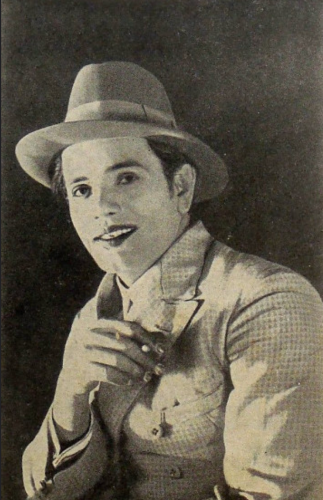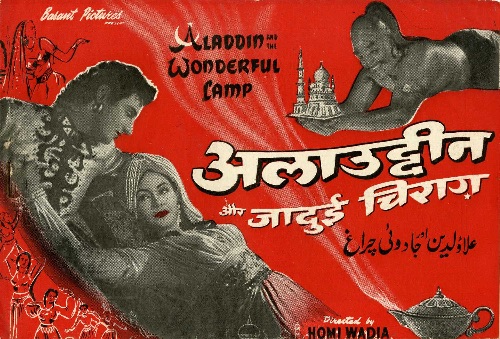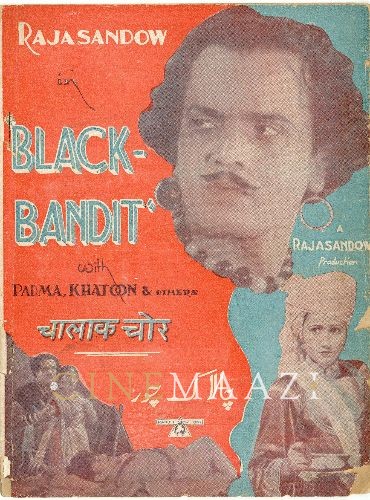Raja Sandow P K

Subscribe to read full article
This section is for paid subscribers only. Our subscription is only $37/- for one full year.
You get unlimited access to all paid section and features on the website with this subscription.
Not ready for a full subscription?
You can access this article for $2 , and have it saved to your account for one year.
- Real Name: P K Nagalingam
- Born: 10 June, 1894 (Pudukkottai)
- Died: 1943
- Primary Cinema: Tamil
One of the major stars to emerge during the silent era, the bodybuilder turned actor Raja Sandow had a long and successful innings in the film industry. Remembered for his starring roles in reformist melodramas produced by Ranjit Movietone, he later shifted to Madras, turning director and producer. He formed successful pairings with Sulochana and Gohar.
Born in 1894 in Pudukkottai as P K Nagalingam, he initially trained as a gymnast and bodybuilder. He attained great success in this career, earning a reward of 1000 rupees from the Gaekwad of Baroda even. His fame grew when the British journalist B G Horniman wrote an article on him. As a result he was invited to Bombay to be the personal trainer for a few businessmen. From there, opportunities in films were not far off, as his imposing physique made him quite in demand for stunt films. He started his career in S N Patankar's National Film. His debut came in 1922's Bhaktha Bodana. It is said that it had to be explained to him that films were make-believe, otherwise he would actually manhandle the villains. He adopted the name Raja Sandow based on the French strongman Eugene Sandow.
He earned fame by starring in films made by Homi Master, R S Choudhury and Manilal Joshi at Kohinoor Pictures and Laxmi Pictures. Some of the films he appeared in during this time include Indrasabha (1925), Mojili Mumbai (1925), Veer Kunal (1925), Telephone ni Taruni (1926) and Gunsundari (1927) among others. Next would come his most successful period as an actor, when he joined Chandulal Shah and Gohar at Jagdish Films and later at Ranjit Movietone. This success would carry over into the talkies era, when he acted as characters with shades of grey in films like Barrister's Wife (1935) and Desh Dasi (1935). He also appeared in hits lke Indira MA (1934). While working in Bombay, he also travelled to Madras to work in films, also becoming a director. He directed films like Anadhai Penn (1930), Nandanar (1930), Peyum Pennum (1930), Sadaram (1930), Parijata Pushpaharanam (1932), Kovalan (1933), Menaka (1935), Vasantsena (1936), Minor Rajamani (1937), Vishnu Leela (1938), Thiruneelakantar (1939), Chudamani (1941), among others. He also played a triple role in Vishnuleela. His films played a pivotal role in introducing the social genre in Tamil cinema. His Menaka was the debut of N S Krishnan. His films also set a benchmark for featuing bold and intimate scenes in Tamil cinema, in films like Menaka (1935) and Chandrakantha (1936).
He was known to be a strict director, going to any lengths to get the desired results from his cast and crew. Excerpts of his early memoirs were published in Movie Mirror in 1928. He remains an influential name in both Bombay and Madras cinema. The veteran actor-director passed away in 1943.
References
https://www.dtnext.in/News/City/2019/11/03005610/1195374/Those-Were-The-Days-The-bodybuilder-from-Pudukkottai-.vpf
Encyclopaedia of Indian Cinema. Ed. Ashish Rajadhyaksha and Paul Willemen. New Delhi: Oxford University Press, 1998
-
Filmography (64)
SortRole
-
Shamsheerbaaz 1953
-
Signet Ring 1931
-
Raj Laxmi 1930
-
Rajeshwari 1930
-
Satharam 1930
-









.jpg)



